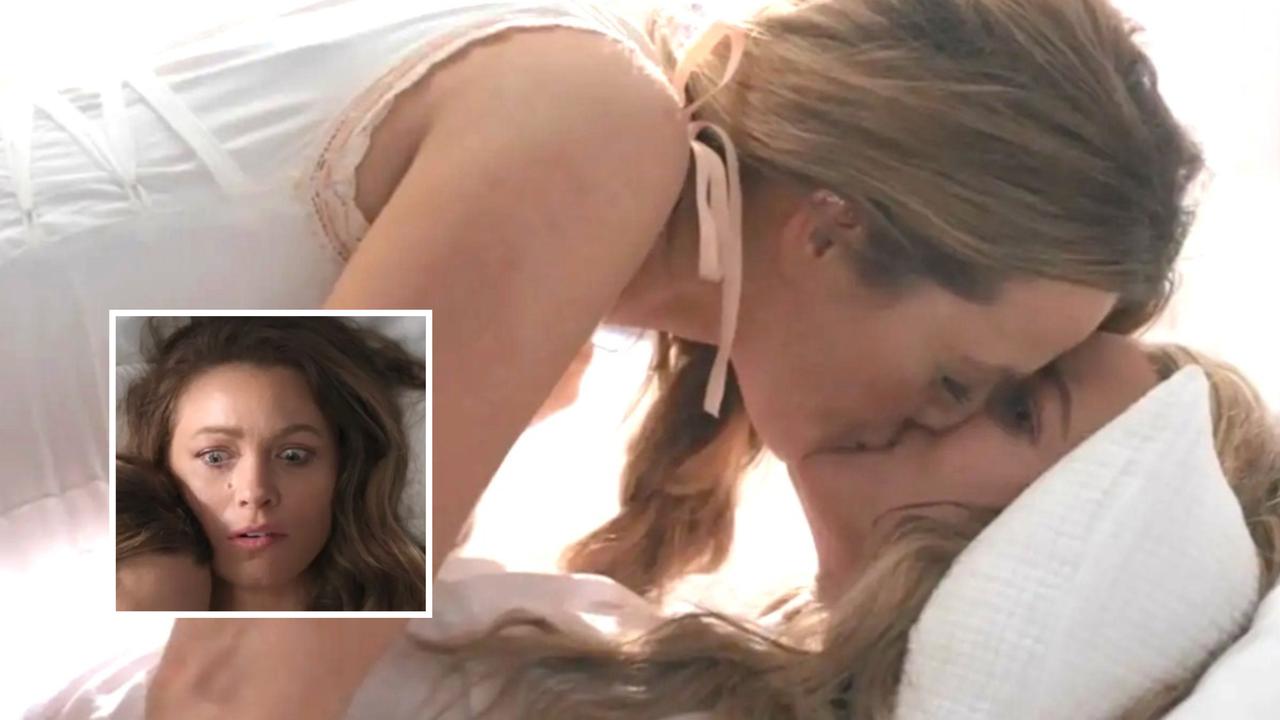Why we’ll remember Battle of the Sexes
AS A movie, Battle of the Sexes is enjoyable but not outstanding. But there’s one aspect that will leave you shaking your head in despair.
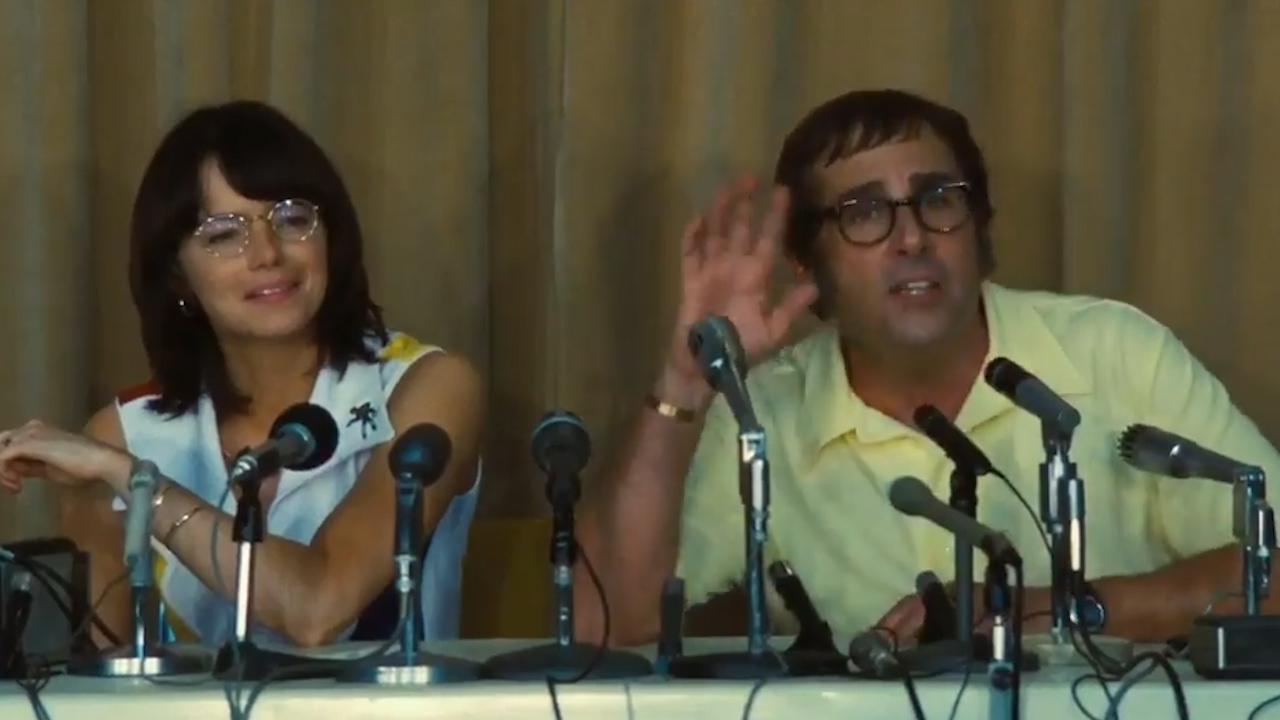
New Movies
Don't miss out on the headlines from New Movies. Followed categories will be added to My News.
IF YOU know a little bit about the history of tennis, you may have heard about the famed Billie Jean King and Bobby Riggs match of 1973.
An exhibition game between then-29-year-old King (played by Emma Stone) and former champion 55-year-old Riggs (Steve Carell), it was watched by some 90 million Americans on TV while 30,000 people packed into the Huston Astrodome.
It wasn’t just a game of tennis. Oh no, it was about so much more than that.
At stake was the credibility of women’s tennis and, by extension, all of women’s liberation. It was termed “Battle of the Sexes” — a provocative title then, and provocative still in 2017.
King has been credited as a pioneer of promoting women’s tennis, opening the front in a war the Williams sisters are still fighting today. King is a big reason why tennis is the leading sport in which female athletes are just as popular and respected as their male counterparts.
King has spent her entire adult life fighting for gender equality, and later for LGBTIQ rights.
The film tracks King and Gladys Heldman (Sarah Silverman) establishing the Women’s Tennis Association after female players were being offered an eighth of the prize money of the men by the patriarchal establishment, here symbolised within Jack Kramer (Bill Pullman).
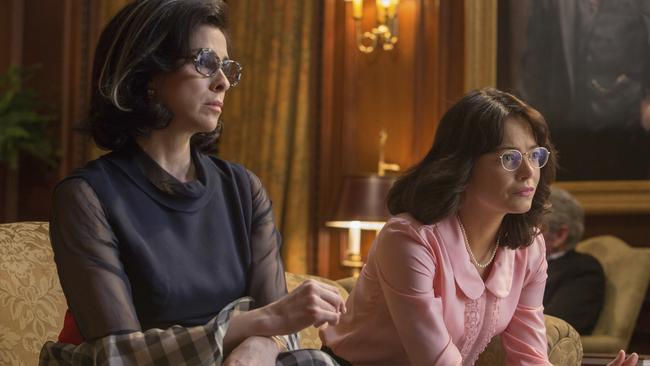
A chronic gambler and a self-proclaimed “chauvinist pig”, Riggs was a showman forever pulling stunts to stay relevant and in the game. Though there’s something to be said for his fight for better prize money and pay for the seniors’ circuit.
The other story here is King’s blossoming relationship with Marilyn (Andrea Riseborough), a woman she meets at the beginning of the movie.
The love story is the B plot of Battle of the Sexes and it has an almost seductive quality to it, at first. But it kind of stays at the surface level and it certainly doesn’t hint at the acrimonious public spectacle the lovers will face a few years down the track.
Much of the personal conflict is seeded in the looming presence of King rival Margaret Court (Jessica McNamee), who’s always in the corner of the frame, looking on and judging. Court is an easy target to represent the anti-LGBTIQ sentiment of the era but it also oversimplifies a complex situation.
The story strands concerning King’s sexuality remain unsatisfactory, incomplete, but it does tap into the main problem with Battle of the Sexes.
It’s a film that needs to wrap together several concerns into its overarching feminist manifesto and it just didn’t have the time to deal with everything properly. Consequently, it feels like some steps were skipped over.
Riggs’ characterisation, especially the relationship with his son, is another aspect that feels underserviced.
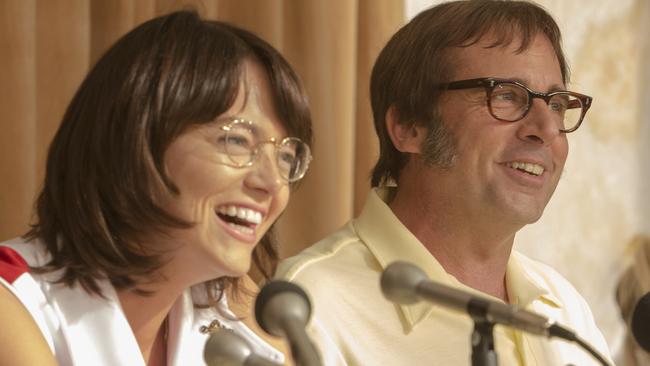
Battle of the Sexes is a reunion for Stone and Carell who’d previously played father and daughter in Crazy, Stupid Love and they’ve both imbued a lot of vulnerability into real-life characters known for their strength or bravado.
It’s also a reunion between Carell and directors Jonathan Dayton and Valerie Faris, the husband-and-wife team behind Little Miss Sunshine and the Zoe Kazan-penned Ruby Sparks.
While Battle of the Sexes doesn’t have the surprising humanity of Little Miss Sunshine nor the quirky, singular spirit of Ruby Sparks, it is still an enjoyable biopic with a strong voice.
What we’ll remember the movie for is how much the struggles of 1973 still resonate today.
The thing about consuming screen culture in the first year of the bombastic Trump presidency is you can’t help but see the parallels on TV and in movies — the different ways King and Riggs approached their training had a definite Clinton/Trump ring to it.
It’s a lot of meaty stuff for artists and creatives to mine. Of course, Battle of the Sexes was written and filmed before that fateful November day. Which means the parallels evident is more of an indictment on the social paradigm that elected him, more than on the man himself.
It would’ve been nice if we could’ve watched Battle of the Sexes and laughed at the boys’ club talking about how women are just biologically inferior and unable to handle the pressure. How quaint, we could’ve said, throwing our heads back in mirth. Not so. You’re more likely to shake your head in despair.
Because the reality of today, more than 40 years later, is that those views are still being aired by some, Google douchebags among them, as “fact” to excuse why women are still being paid less. What a chilling reminder that we haven’t come as far we thought.
Rating: 3/5
Battle of the Sexes is in cinemas from Thursday, September 28.
Follow @wenleima on Twitter for geek-outs about movies and TV.
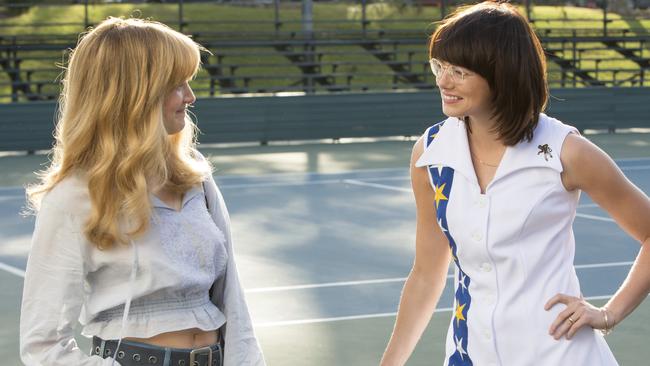
Originally published as Why we’ll remember Battle of the Sexes


